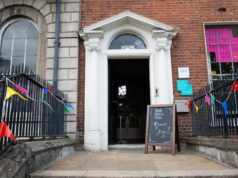
Carcanet are saddened to announce that beloved poet Peter Scupham passed away on Saturday 11th June 2022, peacefully at his home in Norfolk, at the age of eighty-nine.
Peter was a dear friend of Carcanet, with publications including Collected Poems in 2022, followed by Borrowed Landscapes in 2011. His final collection, Invitation to View, is forthcoming on July 28th 2022. It was with relief that they delivered finished copies of the new book to him shortly before his death.

His partner Margaret Stewart reported: ‘Peter died early this afternoon. Very quietly, with the sunshine pouring through the open French windows. His son and partner and myself were with him. It was as if he saw his book into publication, thanks to [Carcanet’s] amazing turn of speed, and was then happy to let go. We read from the book as he lay there, as well as playing him his favourite Fats Waller.’
Peter Scupham was born in Liverpool in1933. Since 1972 he published over ten collections of poetry. With John Mole he founded The Mandeville Press and ran Mermaid Books, a second-hand book business in Norfolk. He received a Cholmondely Award in 1996 and was a Fellow of the Royal Society of Literature.

Michael Schmidt, founder and MD of Carcanet Press, writes: ‘Peter Scupham is a poet I loved almost from my arrival in the UK. He was a superlative second-hand bookseller whose Mermaid Books catalogues are harmonies of erudition andhilarity and whose prices were always within my range. (One entry: “119. Restifde la Bretonne Monsieur Nicolas or the Human Heart Unveiled: the Intimate Memoirs of Restif de la Bretonne… ‘The ‘human heart’ which is unveiled seems to have been situated between the memoirist’s thighs, which is anatomically unusual…”) His envelopes he often decorated with drawings that added to the merriment of his correspondence. The garden of the the Old Hall that he and Margaret Stewart restored was a gathering-place for poets, with summer Shakespeare performances and a permanent welcome.
‘He was published first by Peterloo Poets, Harry Chambers’s Manchester operation; and then by OUP, and when Carcanet took over the OUP poetry list he became formally ours. He was already a central figure in our magazine PN Review, to which he contributed from our very first issue in 1973 and to which he continued contributing until yesterday, as it were. We celebrated his work as apoet, bookseller and eccentric Englishman on his 85th birthday in 2018 with a special supplement.
‘He and his friend John Mole were proper, inky-fingered publishers, with letter press and hand stitching, and their Mandeville Press produced handsome and significant pamphlets and the legendary Dragoncards.
‘Few poets in my experience are as generous, as cheerful and as formally inventive and accomplished as Peter. As he lay preparing for death, I asked him to record some of his new poems, from his last book Invitation to View. He roused himself and with his usual smiling precision of voice read them. Margaret recorded them for all time on her telephone and they will soon be shared with the world, along with a fine tribute by John Mole.’
Last poems
Peter’s last poems consider possible visitors to the poet’s 400 year-old house long after he and his partner have left it behind, delighting in the efforts these visitors make to bring the house and garden alive, from poetry picnics to productions of Shakespeare. Other poems respond to fragments of the past, both personal and historical, as they haunt the present.
For the Carcanet blog, Peter wrote: ‘When Margaret and I bought a semi-derelict and ramshackle Tudor house perched in long grass on the edge of nowhere, we eventually opened it under a scheme called ‘Invitation to View’.
The house and its putting together is one of the themes in this collection, but the Invitation is seen as made by our ghosts, when what we have done and made is just one more arrangement of tantalising dust and wilderness.That invitation set apart, I would not want this book to be about studying one’s x -ray plates in a deck chair, or making cumbrous farewells. I hope there is a spring lyricism, albeit tempered by a certain wintery nip. ’
Peter’s death is a great loss for all at Carcanet, and the poetry community at large. He will be remembered for his poetic energy and trademark wit, which were bright until the end. The title poem of his new book is a wonderful evocation of the Old Hall and of his life:
Invitation to View
Peter Scupham
Pity you didn’t know us in our day –
We might have found you sitting by the lime
in sleepy summer, or in scented May
at lunch with Peter looking for a rhyme
he’d kicked into the long grass by the pond
and Margaret tickling some old cat. Yes, fond
of desultory stuff as life went by
with frogs and flowers and idiotic talk
under trees shuffling green about the sky.
We’re sorry that you couldn’t break your walk,
unlatch the gate and find the front door wide
on chequered shade and bric-a-brac, inside
find rooms life found itself too short to dust
and cobwebs that went back an age or two,
spot a Ravilious plate and Shakespeare’s bust –
Old brochures say just what old brochures do:
‘A house of books and pictures’. Cakes and tea?
A pleasant might-have-been – but let it be.
We’ll watch you puzzling at us from the lawn
until the faces hidden by our names
turn into whispers, rustles, all forlorn
as maidens, crumpled cows and played-out games.
Don’t tell us who you are – we needn’t know.
The dark will tell you when it’s time to go.











